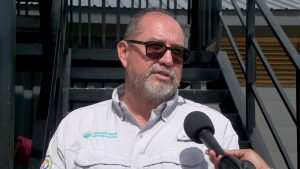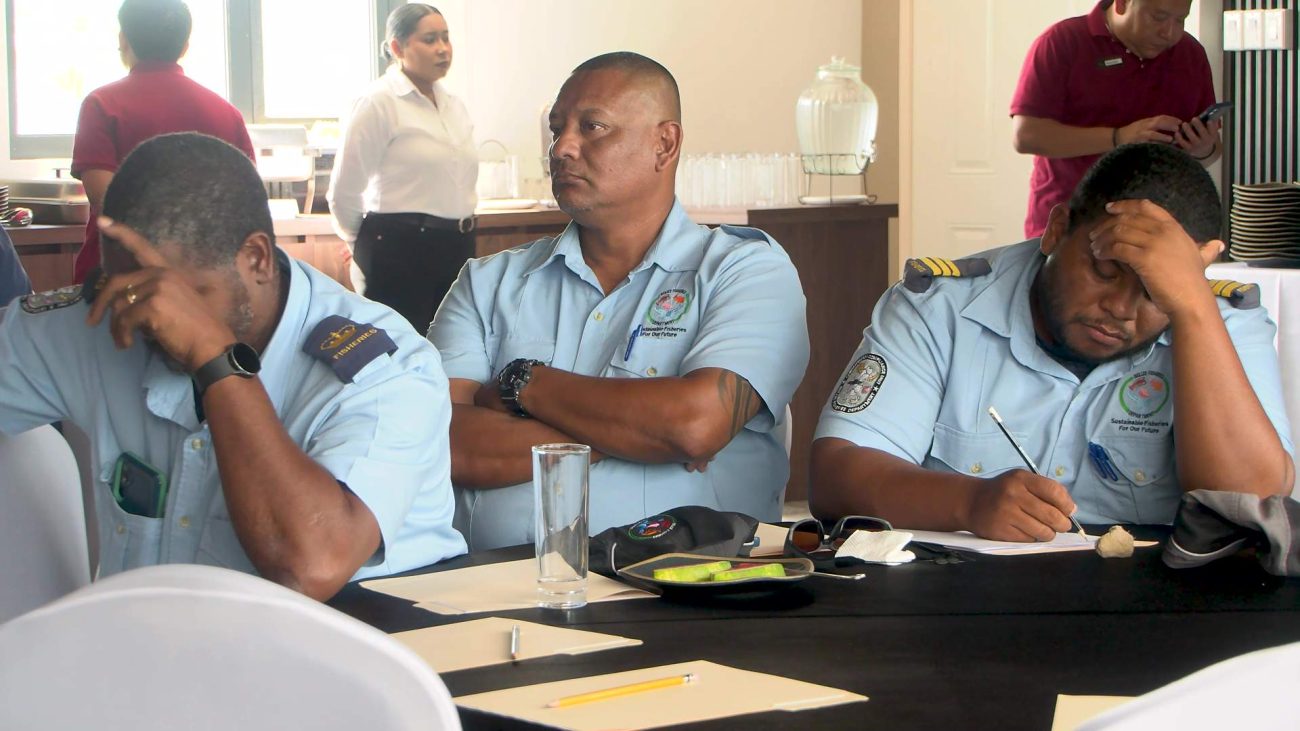Belize Harnesses Science to Safeguard Fisheries
Belize is doubling down on science to protect its seas. The Ministry of Blue Economy and Marine Conservation says healthy fisheries are about food, culture, jobs, and the backbone of our blue economy. On Thursday, the Ministry teamed up with the Fisheries Department for a technical workshop led by renowned scientist Dr. Kendra Karr. The session unveiled decades of data, stretching back to 1977, on lobster, conch, and finfish, Belize’s most valuable marine species. The purpose is to create updated management plans that keep these resources thriving. The workshop brought together fishers, researchers, and government agencies to ensure decisions reflect both science and local experience. Officials say sustainable fisheries demand teamwork, transparency, and strong collaboration across sectors.

Rigoberto Quintana
Rigoberto Quintana, Fisheries Administrator
“Over the past year we have been working with some consultants and in this particular case with Dr. Kendra Kar. She is doing baseline assessment for lobster, conch and fin fish. And also part of that assessment is to update the fisheries management plants. We had the multi-species management plant for Fin fish and for lobster and cocnh, they’re outdated since 2014. So that is the intent today is to present to stakeholders. The findings and recommendation being made by the consultant.”

Valdemar Andrade
Valdemar Andrade, Executive Director, T.A.S.A.
“This is something that we have been waiting for many years in terms of looking at the Fisher’s management plan for the key commercial species for Belize. Turneffe produces a significant amount of conch, lobster and fin fish for the national economy. We have estimated twenty-five to thirty percent of the conch and lobster that goes to national Northern cooperatives come from turneffe. So for us, it is important. We have contributed significant data to this to this work that’s been, that was done. And so we are here to understand how that work looks nationally. What is it that we have done right? What is it that we are we can learn from to be able to manage the stocks into the future? How do we engage better with fishers based on the data that we are seeing? What do we have to look at in terms of the in terms of the type of gear that are used.”
As Belize pushes forward with its Blue Economy vision, these plans will help secure resilient, profitable fisheries for generations to come.






Facebook Comments